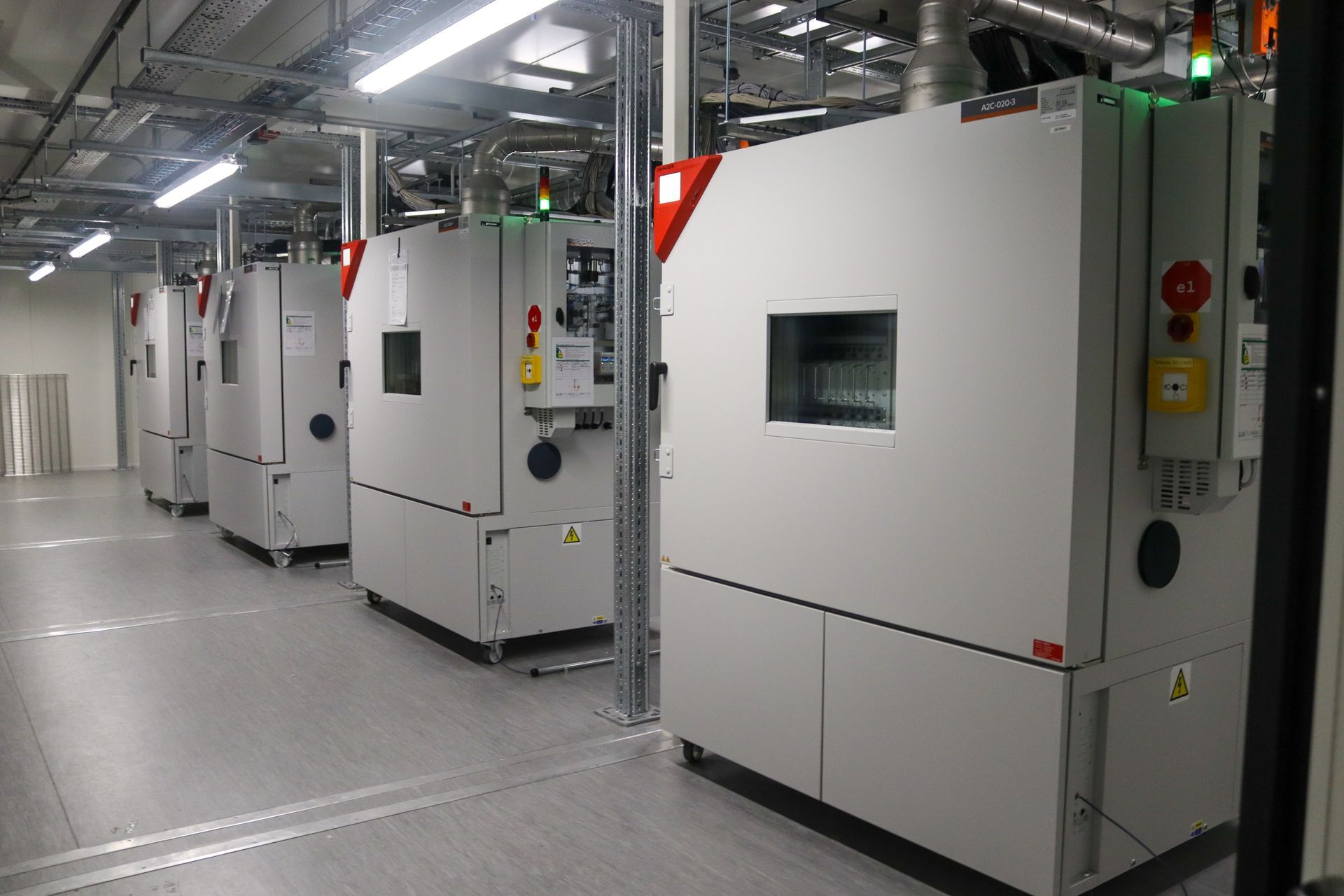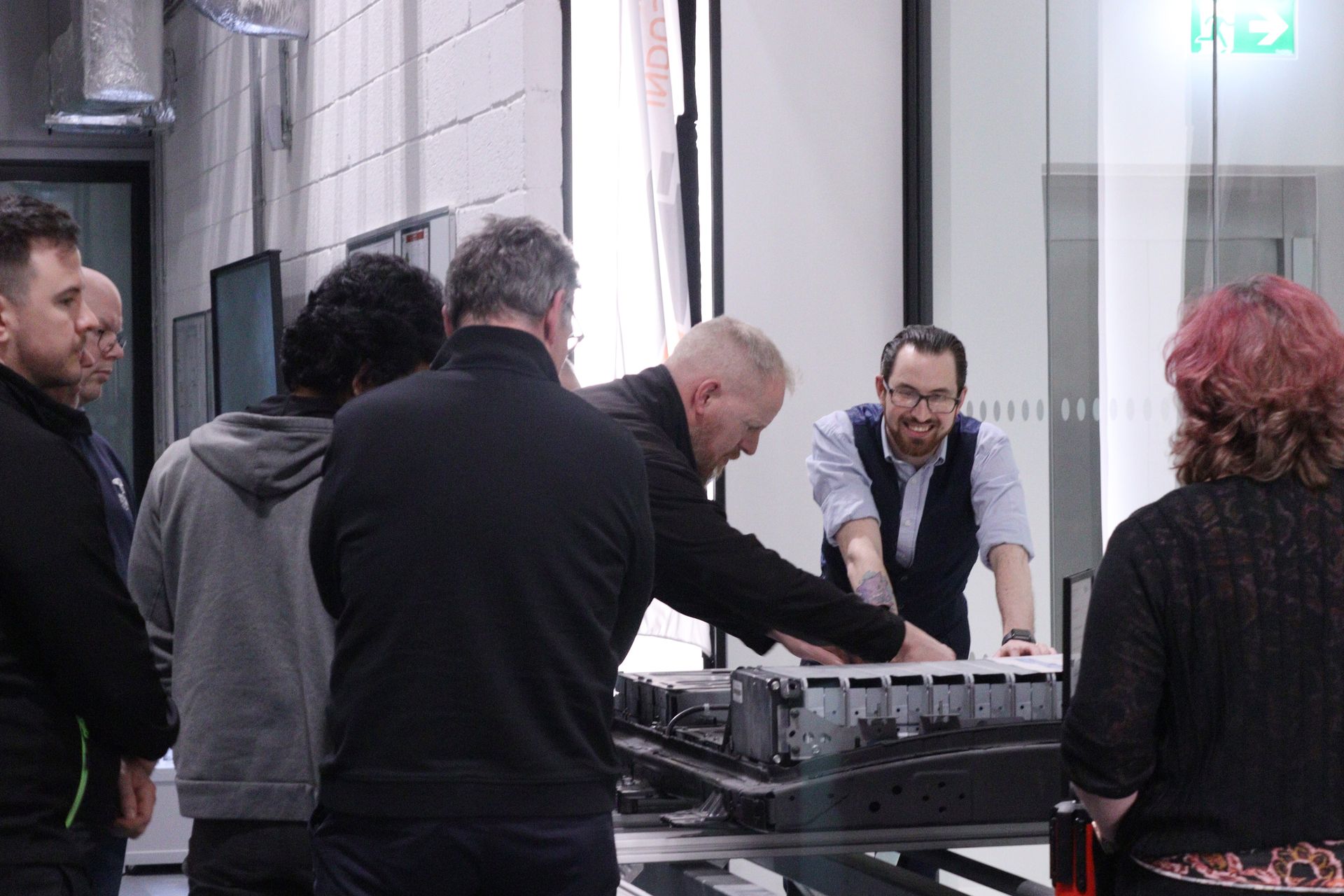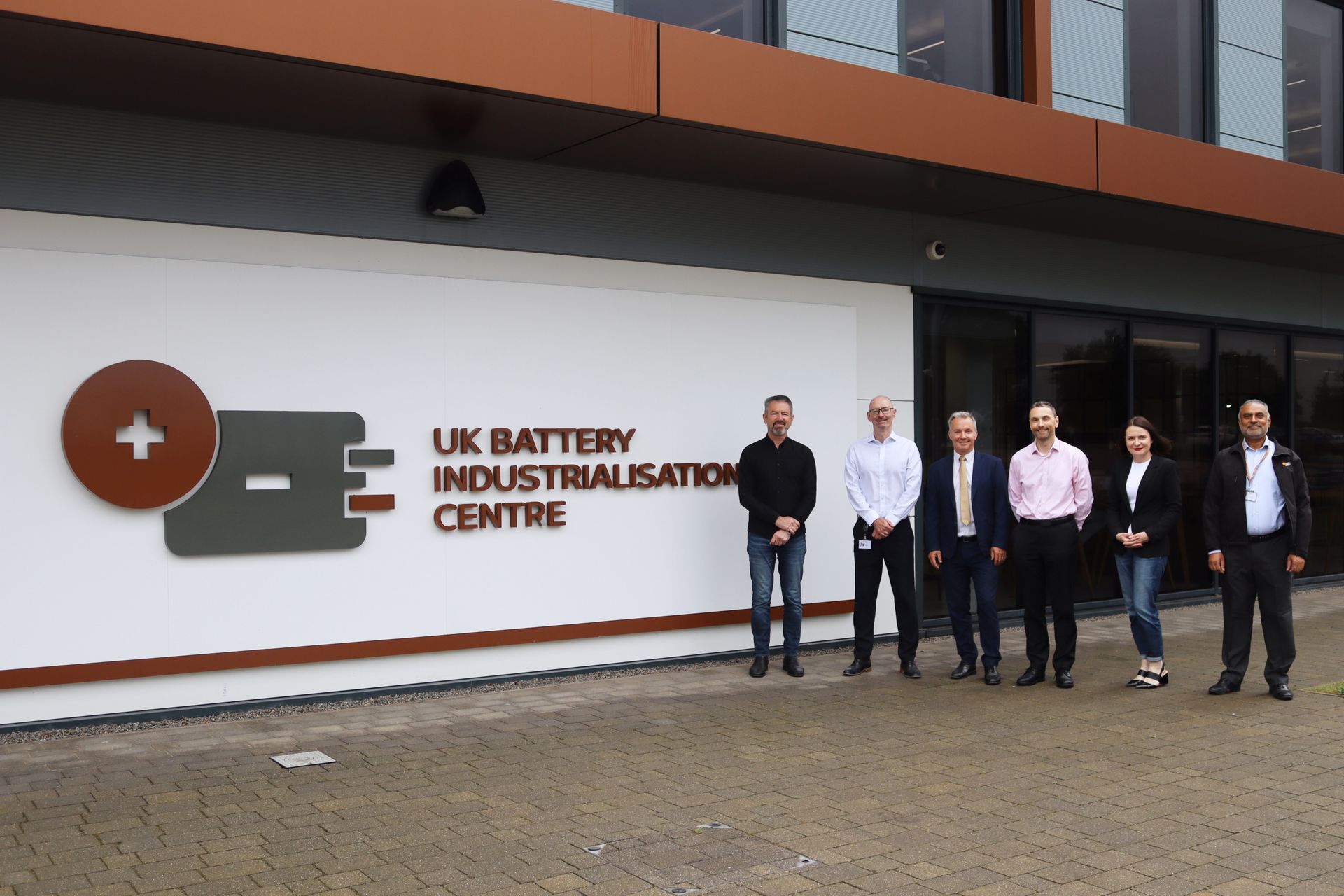By UKBIC Communications Team
•
August 15, 2024
Australian businesses are a step closer to accessing world-leading battery manufacturing scale-up facilities, thanks to an agreement signed today between the UK Battery Industrialisation Centre (UKBIC) and Powering Australia. UKBIC is a £130 million ($250 million) national battery manufacturing scale-up facility based in Coventry, UK that was established by the UK Government through the Faraday Battery Challenge to help companies bridge the gap between battery technology showing promise at laboratory scale and move them towards successful mass production. The agreement is intended to strengthen collaboration in battery research, technology and innovation between Australia and the UK and aligns with the “Statement of Intent” signed by the Albanese Government in April 2023. The Statement is intended to promote collaboration on critical minerals, strengthen international supply chains, meet net zero objectives, remove barriers to adoption of new technology and help create the jobs and the workforce of the future. CEO Shannon O’Rourke said reaching the agreement with UKBIC is a key milestone for the five-month-old Powering Australia team whose work is helping to operationalise the intergovernmental agreement with tangible action and accelerate the development of Australia’s battery industry in partnership with other nations. “We are delighted to have reached this agreement with the UKBIC team, less than six months into our formation as Powering Australia which is very much aligned to the Statement of Intent. Our organisation was established to help Australian businesses succeed in clean-tech manufacturing and being able to access world scale common user facilities like the UKBIC is major win,” said Shannon. UKBIC’s facility covers 20,000 sqm and has extensive equipment covering battery production from mixing and coating, to calendering, slitting cylindrical and pouch cell assembly, and formation, ageing, testing, as well as module and pack assembly. UKBIC Managing Director Sean Gilgunn said: “This is a great first step between the two organisations to encourage cooperation between the UK and Australia in battery technology. We’re looking forward to helping Powering Australia with its vision, and, in the future, to welcoming Australian companies that want to use our state-of-the-art facilities.” The two organisations will work together on strategic projects that offer mutual benefit and will engage in the exchange of skills and expertise to help both nations develop their respective battery industries further. Notes to editor: To arrange an interview, please email richard.robinson@ukbic.co.uk or phone +44 (0) 7503 628892 UKBIC is the UK’s national manufacturing battery development facility, providing manufacturing scale-up and skills for the battery sector. The purpose-built facility is where businesses develop their battery manufacturing processes at the scale they need to move to industrial production and where those working in the industry can develop new skills by working on the production line, alongside UKBIC’s specialist teams. Created with an initial investment of £130m, an additional £74m has now been committed by UK Research and Innovation to enhance the facility by installing a new pilot line to bridge the gap between UKBIC’s larger scale offering and small-scale demonstrators available elsewhere. Funding is also being used to support the construction of a new battery development laboratory, a clean and dry zone, and cell cyclers. Opened in July 2021, the Coventry-based facility can be accessed by organisations with existing or new battery technology, or companies looking at entering the industry. UKBIC doesn’t retain customer IP. UKBIC is part of the £610m Faraday Battery Challenge, which is delivering a research and innovation programme that covers "Lab to Factory" development, cutting-edge research, national scale-up infrastructure, and skills and training. UKBIC’s construction was part-funded through the West Midlands Combined Authority and was delivered through a consortium of Coventry City Council, Coventry and Warwickshire Local Enterprise Partnership and WMG, at the University of Warwick.















